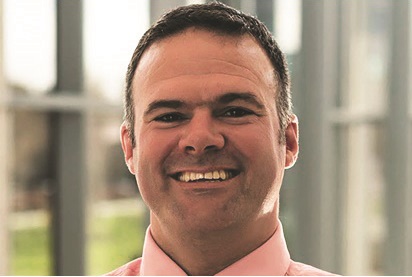
The King’s Fund, Nuffield Trust and Health Foundation
A minimum of 3,000 extra pharmacists are needed in general practice across England by 2024 to help tackle rising patient demand and GP shortages, a report compiled by three major think-tanks warns.
The report also said that because they offer a large workforce, “relatively” strong future supply and the ability to carry out “substantial” work usually undertaken by GPs and nurses, pharmacists, as well as physiotherapists, are in a good position to support the primary care team.
The King’s Fund, Nuffield Trust and Health Foundation’s report ‘Closing the gap
’ focuses on nursing and general practice, setting out a series of policy actions they say should be at the heart of a NHS workforce implementation plan, which is due to be published in April 2019.
“The only way forward is to use the skills of other staff, including pharmacists and physiotherapists, much more widely and routinely in and alongside general practice,” the report says.
The report contains projected estimates that 3,100 more full-time equivalent (FTE) pharmacists need to be working in general practice by 2023/2024, alongside 6,000 more FTE physiotherapists by 2028/2029. New technology and increases in administrative and clinical support staff, such as healthcare assistants and pharmacy technicians, will also be required to “compensate for the GP shortfall”.
It also warns that without “decisive action”, GP shortages in England could almost triple to 7,000 by 2023/2024.

Source: Nic Bunce / The Pharmaceutical Journal
Sandra Gidley, chair of the Royal Pharmaceutical Society (RPS) English Pharmacy Board, said the report was encouraging because it complemented the RPS’s views about the greater use of pharmacists across the NHS
Sandra Gidley, chair of the Royal Pharmaceutical Society (RPS) English Pharmacy Board, welcomed the “important” report and said it was encouraging that it complemented the RPS’s views about the greater use of pharmacists across the NHS.
“Pharmacists will be central to reducing pressure on the health service, supporting public health and prevention, reducing avoidable hospital admissions, and reducing overmedication,” she said, adding that the forthcoming workforce implementation plan would need to enable healthcare professionals to deliver the ‘NHS Long-Term Plan’, to reduce pressure on the NHS and improve patient care.
“This must include support for pharmacists, with a focus on education, health and wellbeing and their continuing professional development if we are to see the biggest positive impact of these changes,” Gidley added.
But Malcolm Harrison, chief executive of the Company Chemists’ Association (CCA), pointed out that with fewer students applying to study pharmacy and more career options available when they qualify, pharmacists may be facing workforce challenges of their own, which the CCA is working to find solutions for.

Source: Company Chemists’ Association
Malcolm Harrison, chief executive of the Company Chemists’ Association (CCA), says pharmacy is facing its own challenges, with fewer students applying to study pharmacy
“We host the cross-sector community pharmacy workforce development group and have been contributing to NHS England and Health Education England horizon scanning work. For the pharmacy workforce to be sustainable in the future, the CCA wants pharmacists to have more time to give care to patients.
“To meet the objectives laid out in the ‘NHS Long-Term Plan’ and GP contract, this may mean exploring flexible employment models to allow for portfolio working across care settings.”
The ‘NHS Long-Term Plan’, published in January 2019, sets out proposals for primary care networks across England to employ a pharmacist, creating an estimated 6,000 extra pharmacy roles.
Nigel Ratcliffe, chair of the Pharmacy Schools Council, said he believed that further rationale for the “substantial use” of pharmacists within the health workforce was owing to their knowledge and skills of medicines. But he cautioned that all new pharmacists entering the profession should be of the same “high standard”.
“We need to focus on ensuring this and then focus on the appropriate distribution of the available pharmacist workforce to the best benefit of society,” Ratcliffe said.
The ‘Closing the Gap’ report also calls for a £900m increase in the annual budget for training and developing healthcare workers in England by 2023/2024, of which £250m would be for developing workforce skills so that staff can keep up with changing technology and patient needs.
It also recommends the introduction of large-scale pilots aimed at exploring different models, similar to the NHS England’s ‘Clinical pharmacists in general practice’ programme, to address the “pressing need” to explore new ways of meeting patient needs in primary care.
You may also be interested in

Tackling the NHS drug budget: why we set up a regional collaboration for medicines value

Lack of joined-up working between pharmacy and general practice is ‘nonsensical’, says former BMA chair
